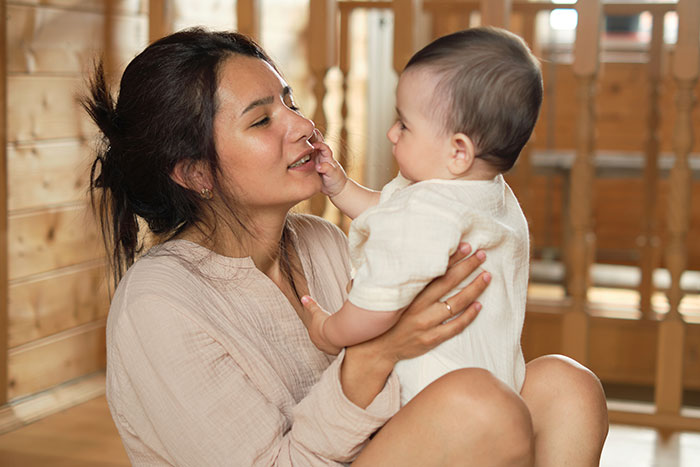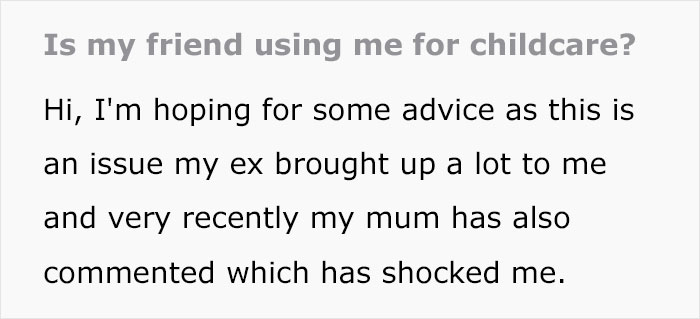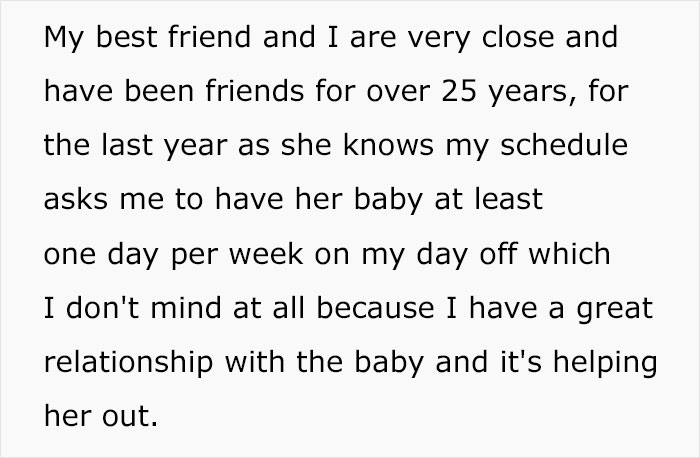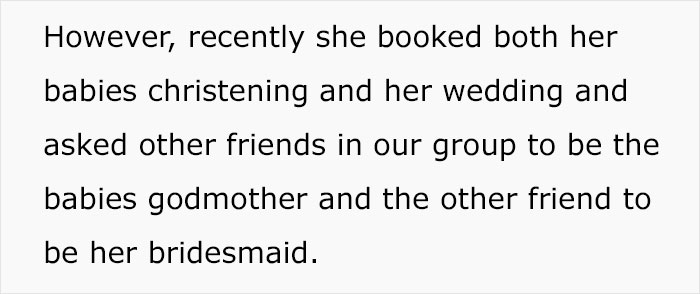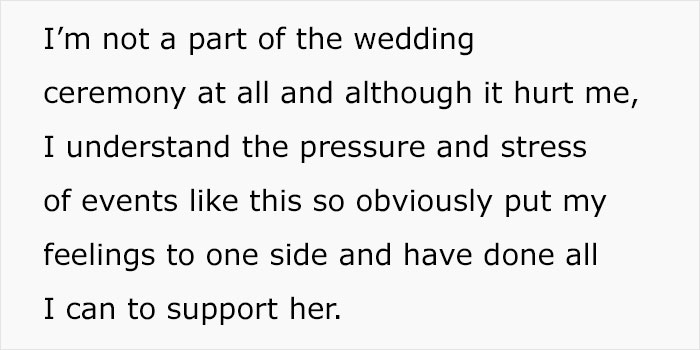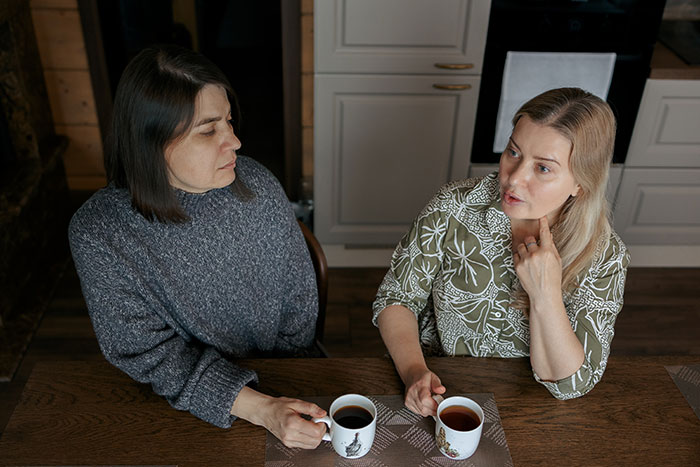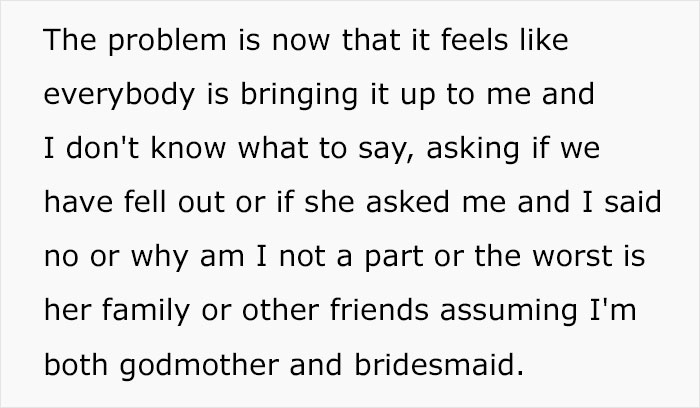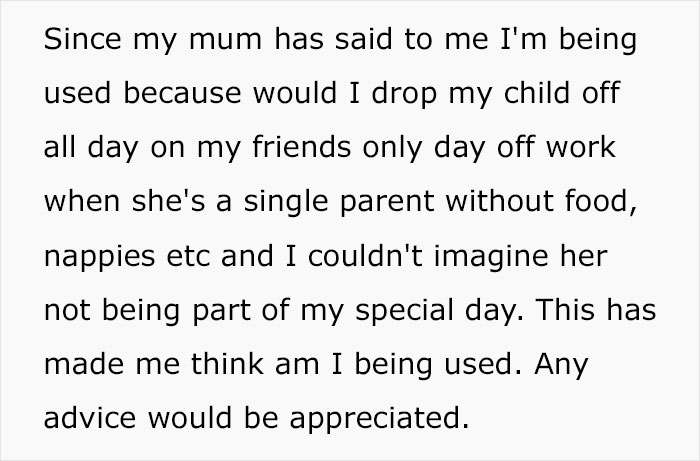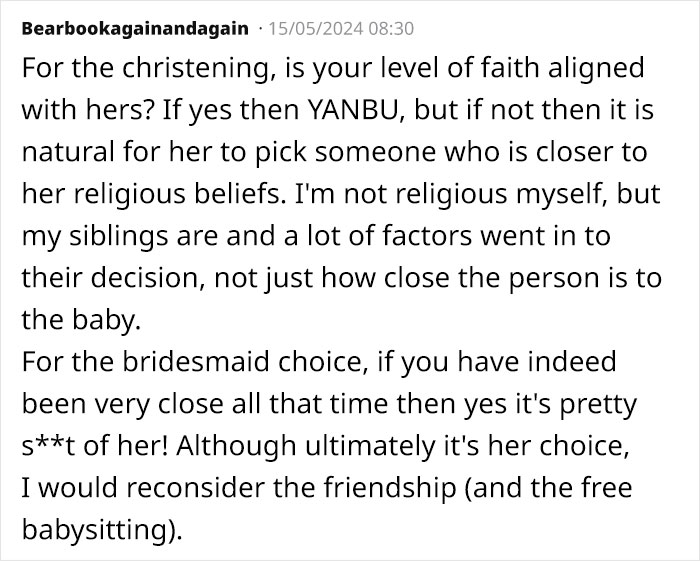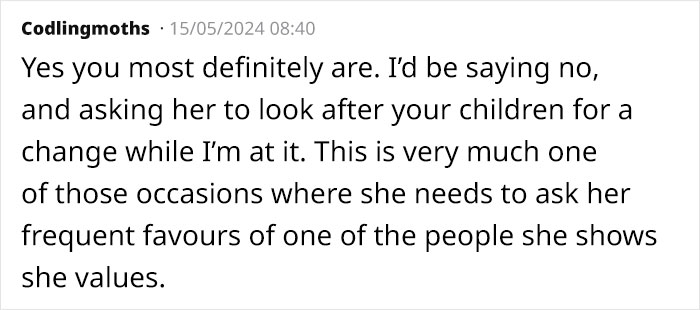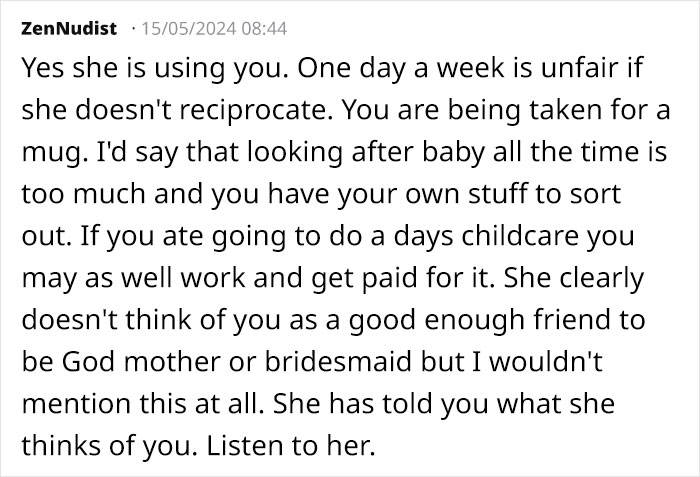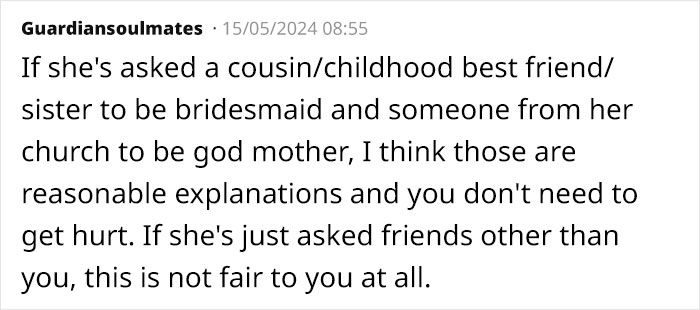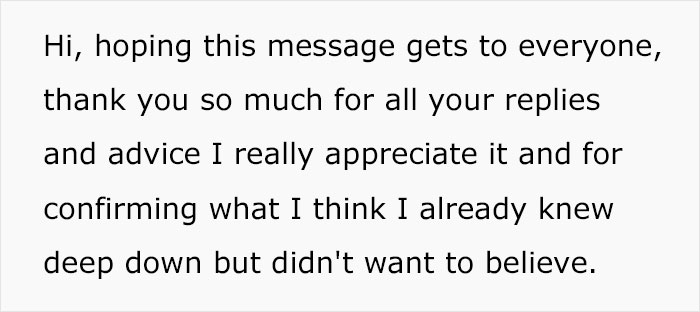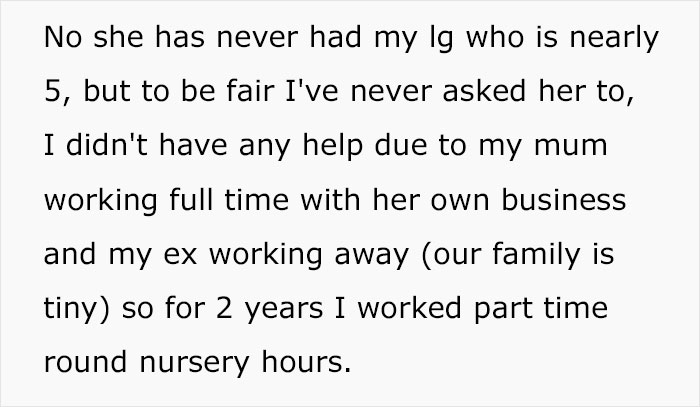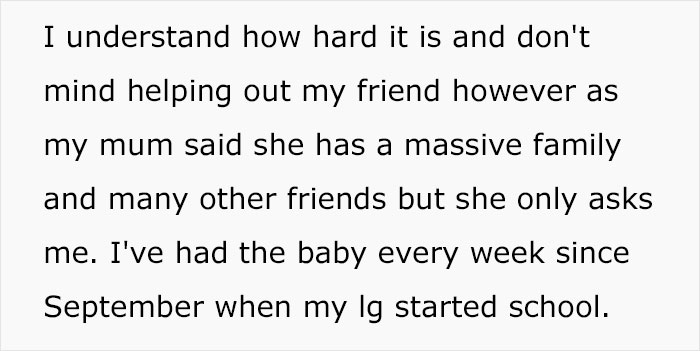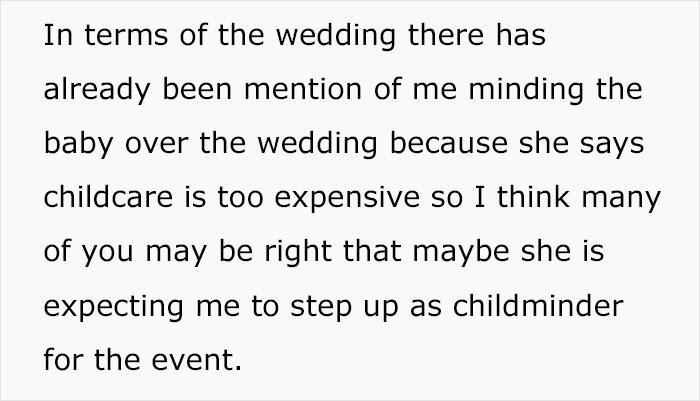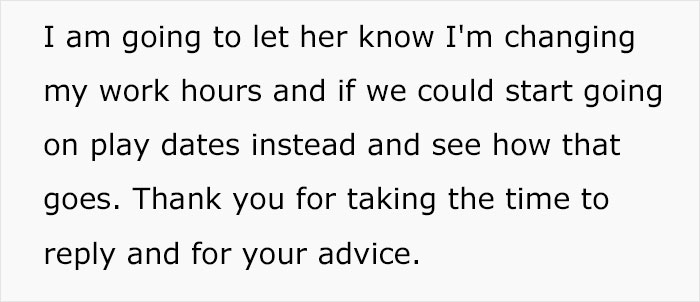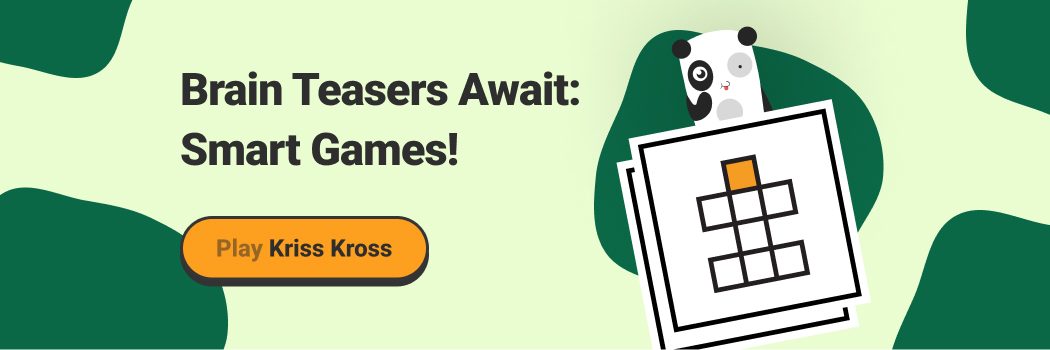Today’s story is about online user Sunshinemama1, who shared her experience with a lifestyle forum, Mumsnet. According to her account, she agreed to take on childcare duties for her best friend of 25 years. However, the “thanks” she received were non-invitations to two momentous events in her friend’s life. It left her taken aback, so she sought advice and answers on the internet.
This woman decided to do her longtime best friend a favor by taking on childcare duties
Share icon Image credits: yavdat / Envato (not the actual photo)
However, she received an unpleasant response
Share icon Share icon Share icon Share icon Share icon Image credits: Lara-sh / Envato (not the actual photo)
Family and friends told her she was likely being used
Share icon Share icon Image credits: Sunshinemama1
She was left confused and has turned to the internet for answers
Share icon Image credits: MART PRODUCTION / Pexels (not the actual photo) The story’s poster wasn’t aware that she may have been used for her best friend’s benefit. But apparently, this scenario is far too common. Statistics say 90% of Americans demonstrate codependent behavior. As for why people seem to willingly get themselves into such relationships with other people, experts like clinical psychologist Scott Bea attribute it to the person’s upbringing. “Maybe we grew up in a family where there’s lots of chaos and where our emotions get attached or entangled to other family members,” Dr. Bea told the Cleveland Clinic. That begs another important question: Why do people stay in codependent relationships? According to Dr. Bea, it is possible that people who compromise too much are waiting for a positive change from the other person. “People are often engaged in some sort of calculation about future likelihoods and whether a relationship can get better. People with hopes that rise and then are dashed frequently will persist a bit longer when they have a commitment and significant investment.”
Here’s an expert’s advice on how to properly end one-sided relationships
Share icon Image credits: Roberto Nickson / Pexels (not the actual photo) It’s no secret that one-sided relationships aren’t healthy, especially for the person who constantly bends over. There’s no other way but out, and Dr. Bea’s advice for cutting ties with codependency begins with keeping a neutral dialogue. “Don’t excessively blame the other person. Take responsibility for your own contribution to the conflict. Try to preserve a sense of integrity and well-being of the person, and if there are kids involved, do the same thing.” Those who feel trapped in one-sided relationships seem to have difficulty putting their foot down. This is something Dr. Bea stresses. “If you say, ‘We’re splitting,’ and you’ve said that 100 times and no split has ever occurred, it’s going to be meaningless. “[Instead], you say, ‘You know, I’ve reached my limit. I really need to see some change sometime in the next six months, or we need to calculate other paths,’ and mean it.” After hearing what could be the harsh truth from her mom, the poster now feels lost and confused about what to do next.
But most people in the comments believe she is being used
Share icon Share icon Share icon Share icon Share icon Share icon Share icon Share icon Share icon Share icon Image credits: YuriArcursPeopleimages / Envato (not the actual photo)
The poster shared a final response to clarify her post
Share icon Share icon Share icon Share icon Share icon Image credits: Sunshinemama1 Anyone can write on Bored Panda. Start writing! Follow Bored Panda on Google News! Follow us on Flipboard.com/@boredpanda!
